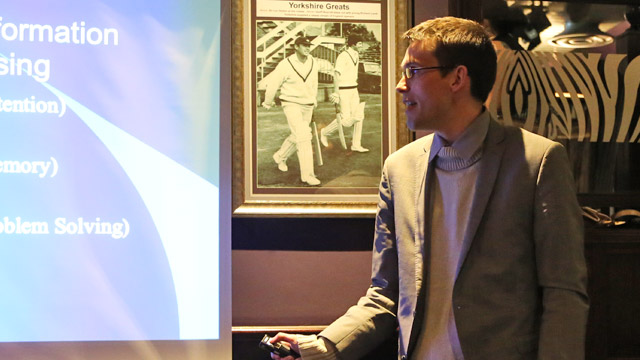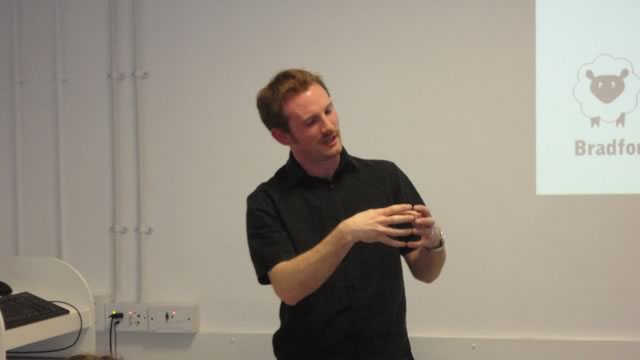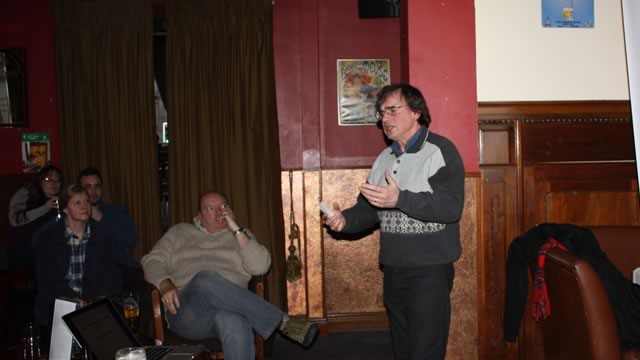Related to You Know Less Than You Think
-

Widening the View: Looking at the limits of Human Perception
After the success of his SiTP talk, the award-winning "You know less than you think", Paul Hopwood is back for the sequel! Based around his Cognitive Psychology studies, the first talk focussed on the different stages of information processing in the human brain. By looking at research into the brain's ability to acquire, store, retrieve and use information; the talk highlighted that humans have a tendency to severely overestimate their ability to perform these tasks.
-

A Skeptical Look at Statistics
John Fletcher presents a talk on how stats are used and abused.
-

The Modern Face of Physiognomy
The notion that one can judge a person's character on the basis of their facial appearance is an idea that dates back to the ancient Greeks and for a short period, the practice of physiognomy was considered scientific. Despite the fact that this ancient practice has long been discredited, the idea that one can "read" a person's character simply by looking at their face still persists within folk psychology. In fact, this belief and our natural tendency to judge people on the basis of facial appearance has a surprisingly pervasive effect on all of our lives.
-

Neuroscience for the Soul
Dr. Craig Aaen-Stockdale (Optometry, Bradford) will give an introduction to the field of neurotheology, which attempts to relate religious behaviour and experience to the workings of the brain. He will review the current literature and give his own thoughts on what, if anything, this tells us.
-

Neuroscience for the Soul
Dr. Craig Aaen Stockdale (Optometry, Bradford) will give an introduction to the field of neurotheology, which attempts to relate religious behaviour and experience to the workings of the brain. He will review the current literature and give his own thoughts on what, if anything, this tells us.
-

Stop Playing Tricks on Me
The Amazing Leo Dragon presents a talk on the psychology of all things strange, from magic to psychics, from spoon bending to astrology. A whirlwind tour of why people really jump at the explanations given by the "professionals", with some live magic thrown in along the way.
-

Psychology of Anomalous Experiences
Ever since records began, in every known society, a substantial proportion of the population has reported unusual experiences many of which we would today label as "paranormal". Opinion polls show that the majority of the general public accepts that paranormal phenomena do occur. Such widespread experience of and belief in the paranormal can only mean one of two things. Either the paranormal is real, in which case this should be accepted by the wider scientific community which currently rejects such claims. Or else belief in and experience of ostensibly paranormal phenomena can be fully explained in terms of psychological factors.
-

Why do People do Weird Things?
Human behaviour often appears to be maladaptive, pointless, ineffective for its expressed purpose, and even completely absurd. In this talk Michael Heap will examine, with the aid of demonstrations and videos, some examples of odd behaviour that is based on unusual and paranormal ideas and beliefs. These will include healing practices, dowsing, hypnosis, and communication with "the spirit world."
